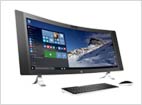The common wisdom a couple of years ago was that BlackBerry was doomed. Its demise was a question of when and in what form, not if.
Well, the common wisdom may have been wrong. At the Asia-Pacific Economic Cooperation CEO Summit in Manila, CEO John Chen told CNBC that BlackBerry could turn a profit next year. The key to the turnaround is the Priv phone, which has gotten very good reviews.
BlackBerry is not out of the woods – the company had a quarterly loss of $66 million during the quarter ending in late August – but it is nearing a clearing. The Priv is hot: CNNMoney on December 11 said that BlackBerry’s first Android phone had sold out online at Best Buy and Walmart and that the company’s stock price had been suitably rewarded.
In the U.S., the Priv is only carried by AT&T, though it may be supported by T-Mobile. If the device stays popular, more carriers almost certainly will add it and BlackBerry will enjoy positive momentum, something that it has eluded it for years.
Saving the company involves moves big and small. In early December, BlackBerry said it would drop BBM Meetings on February 10, 2016, after only one year in the field, according to SearchMobileComputing. The company, which made the announcement in a blog post, didn’t give a reason. It may have been as simple as making hard choices between a service that is nice to have versus one that is necessary for its survival:
Industry experts said BlackBerry quickly found it could not compete with the likes of Cisco WebEx, Citrix GoToMeeting, Skype for Business and the many other mobile-conferencing platforms.
Perception is as important as quality products and a strong niche, and BlackBerry may be moving from the endangered species to too-tough-to-kill lists. Forrester, in its mid-December mobile management report on the fourth quarter, named BlackBerry’s BES12 and Good Powered by BlackBerry a “leader” based on evaluation of 25 parameters. It scored highest on 12, according to ValueWalk, which noted Forrester’s approval of the transition BlackBerry is attempting:
In its report, Forrester noted that BlackBerry has changed a lot from what it used to be few years back, and this is good news for customers. BES has become a truly cross-platform solution, and still maintains its commitment to security. The company is committed to helping customers with secure collaboration, communication and application development, and this is clearly visible with the acquisitions of AtHoc, WatchDox, and, most recently, Good Technology.
The future of any company is not guaranteed. What can be said, however, is that Chen and his team have taken BlackBerry far away from the brink.
Carl Weinschenk covers telecom for IT Business Edge. He writes about wireless technology, disaster recovery/business continuity, cellular services, the Internet of Things, machine-to-machine communications and other emerging technologies and platforms. He also covers net neutrality and related regulatory issues. Weinschenk has written about the phone companies, cable operators and related companies for decades and is senior editor of Broadband Technology Report. He can be reached at [email protected] and via twitter at @DailyMusicBrk.



